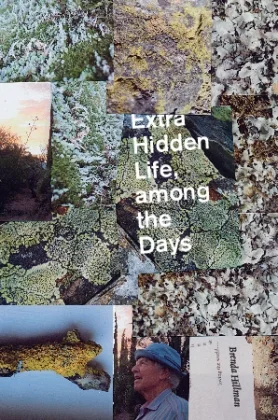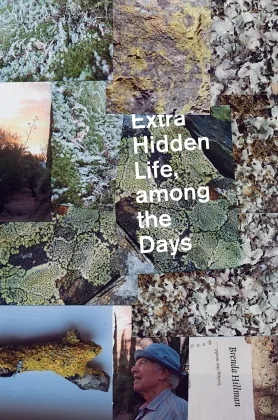Extra Hidden Life, among the Days
by Brenda Hillman
Wesleyan University Press, 2018. $24.95
ReviewED by Michael Hettich
Brenda Hillman is a poet who actively and often successfully employs intuition, improvisation and formal dexterity to make interesting and moving poems. As an politically-engaged poet writing out of the High Modernist, Objectivist, Black Mountain line, she is distinguished from many if not most contemporary poets in her refusal to employ a single signature style, instead favoring experiments with form and voice that enact shifts of mind and attention, emotion and mood, often within the same poem. These often exhilarating explorations enlarge the territory of poetry and communicate the thrill of discovery. Her best poems gleam with the dew of early morning.
Hillman’s excellence as a poet is due, in large part, I think, to her willingness to attempt what she cannot always quite achieve, to go beyond what she knows and knows how to do. In her tenth book of poetry, Extra Hidden Life, among the Days (Wesleyan University Press, 2018), this willingness to push beyond, to attempt the unsayable, to trace the consciousness of self and other, results in an uneven, often frustrating book whose gems stand out for their emotional clarity and vividness but whose less-successful poems feel like private ruminations, more interesting for what they try to achieve than for their actual achievement. Though the thematic obsessions that guide these poems—that we are responsible for the loss of what we love and what engages us in the world—are urgent and timely and certainly part of the emotional consciousness of anyone awake enough to be reading poems such as these—many of these poems fail to find their organic formal structures and end up feeling more like jottings than like fully-realized works. We don’t feel the liberating pressure that successful formal structures impose on the mind and heart. Thus many of these poems are merely interesting.
Still, there are beautiful, fully achieved pieces and beautiful passages in this book. In the elegies to the poet’s father and to the poet CD Wright, we find feeling inextricably tied to form and content; the insights and turns of phrase feel as though they were discovered organically in the act of writing: “i cling to her like a burr on a sock / cling to her like a lipstick stain / cling like lichen on the live oak breaking things down” (“Her Presence Will Live Beyond Progress”).
Oddly, these elegies seem to “discover” more than book’s evidently more experimental poems do. They feel fresher with the life of the big world outside the poet’s mind.
On the inside flap of the book, the publisher informs us that this poetry works “as a discipline of love and service to the world, whose lines shepherd us through grief and into an ethics of active resistance.” This grandiose statement is hardly realized by the actual poems here: the book is not a tract or a manifesto. Its best poems gleam with authenticity and life.
Michael Hettich's most recent book, Bluer and More Vast: Prose Poems, was published this past summer. A new book, To Start an Orchard, is forthcoming from Press 53 in September 2019. His work has appeared widely in journals and anthologies, and he has won a number of awards and fellowships. Michael recently moved from Miami to Black Mountain, NC.

